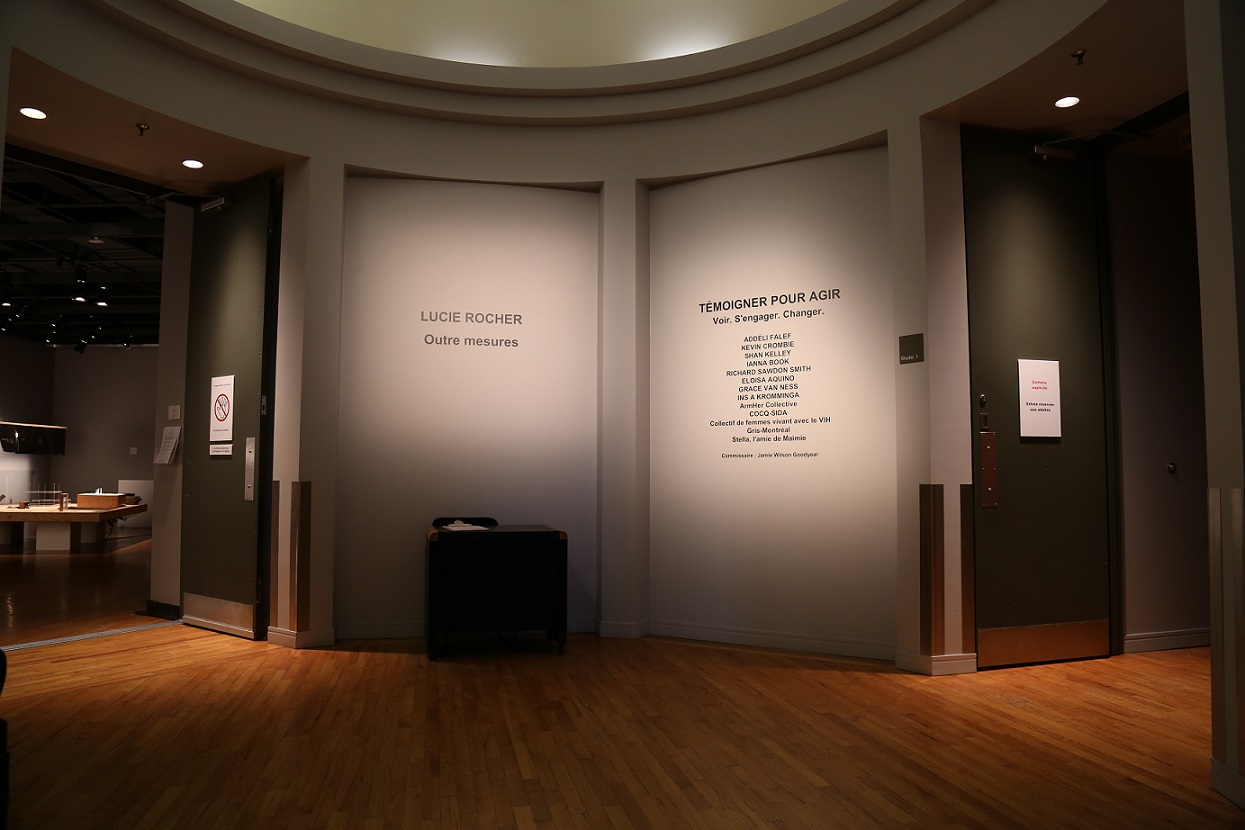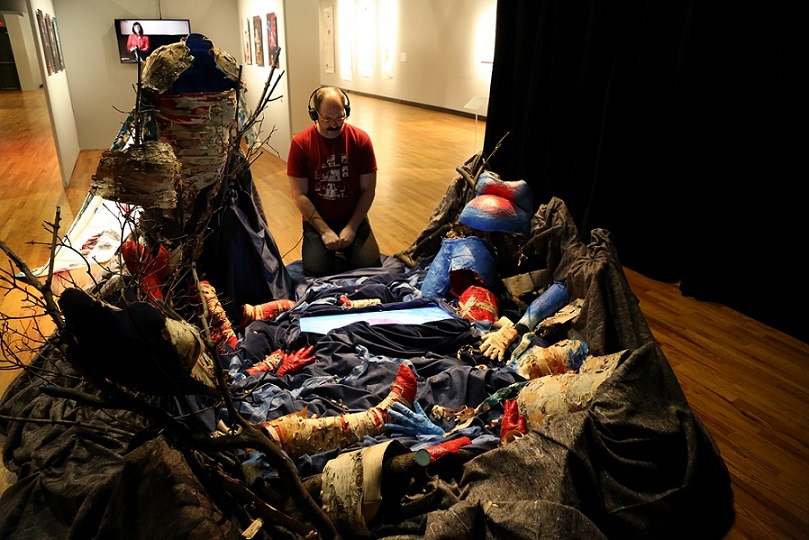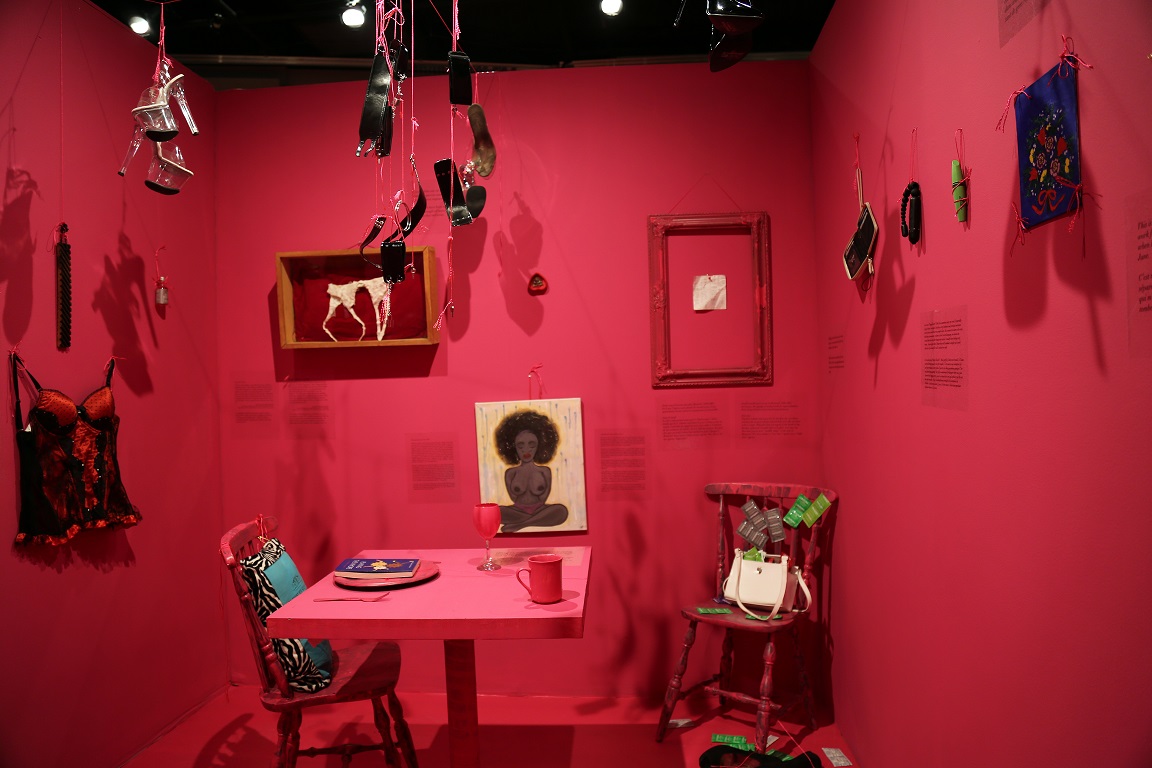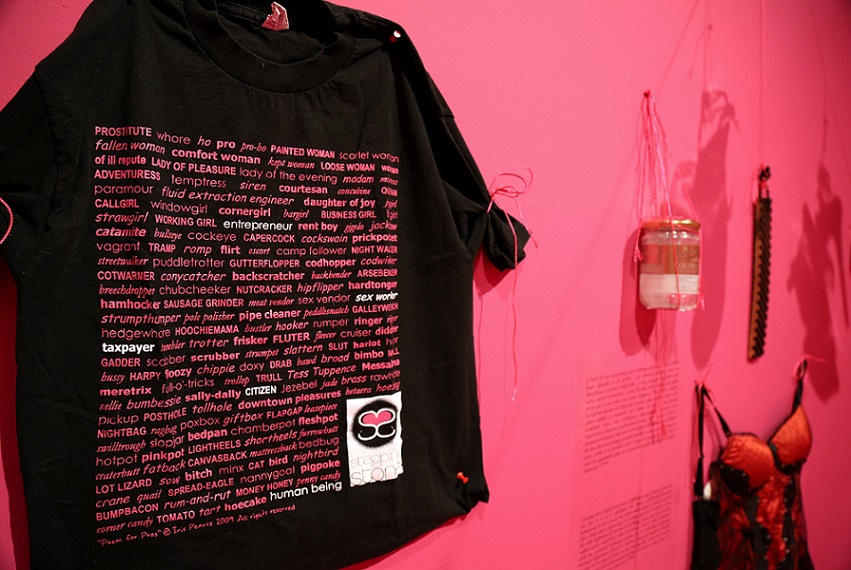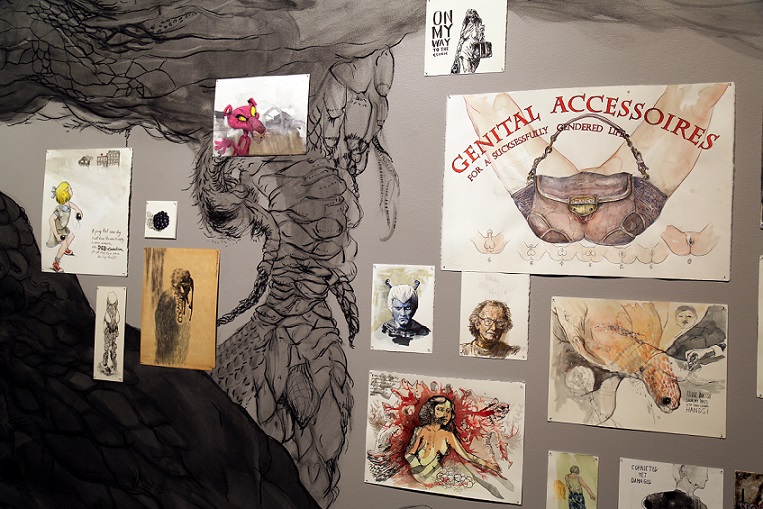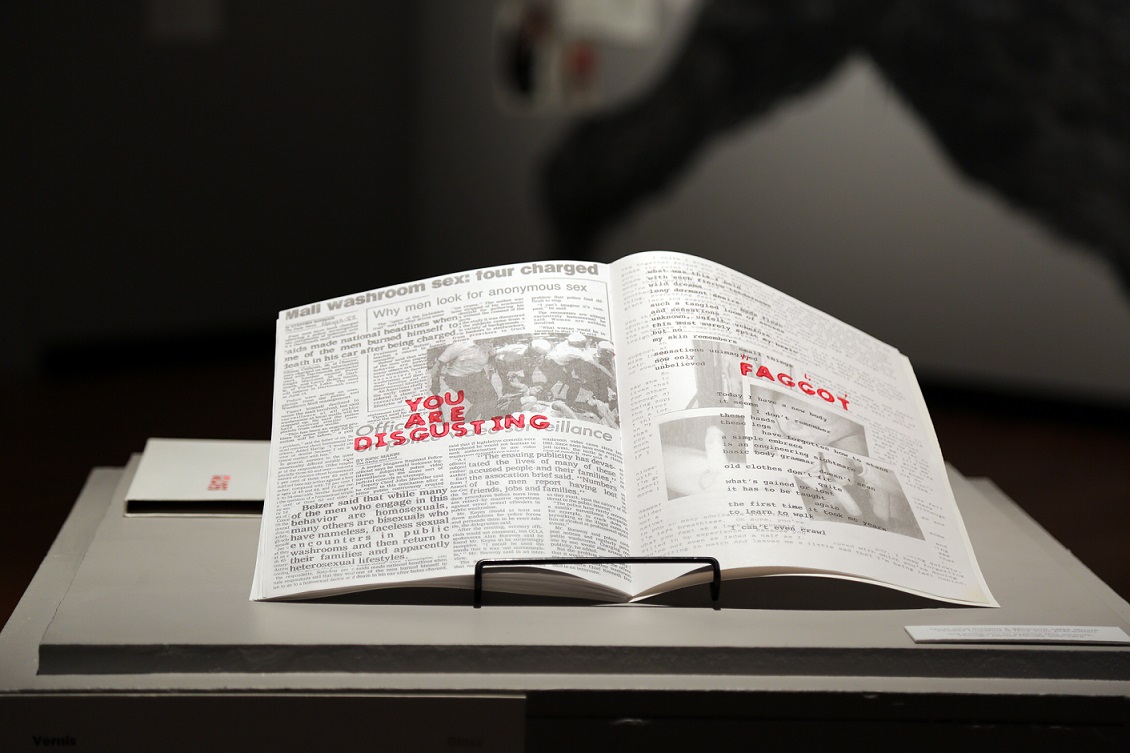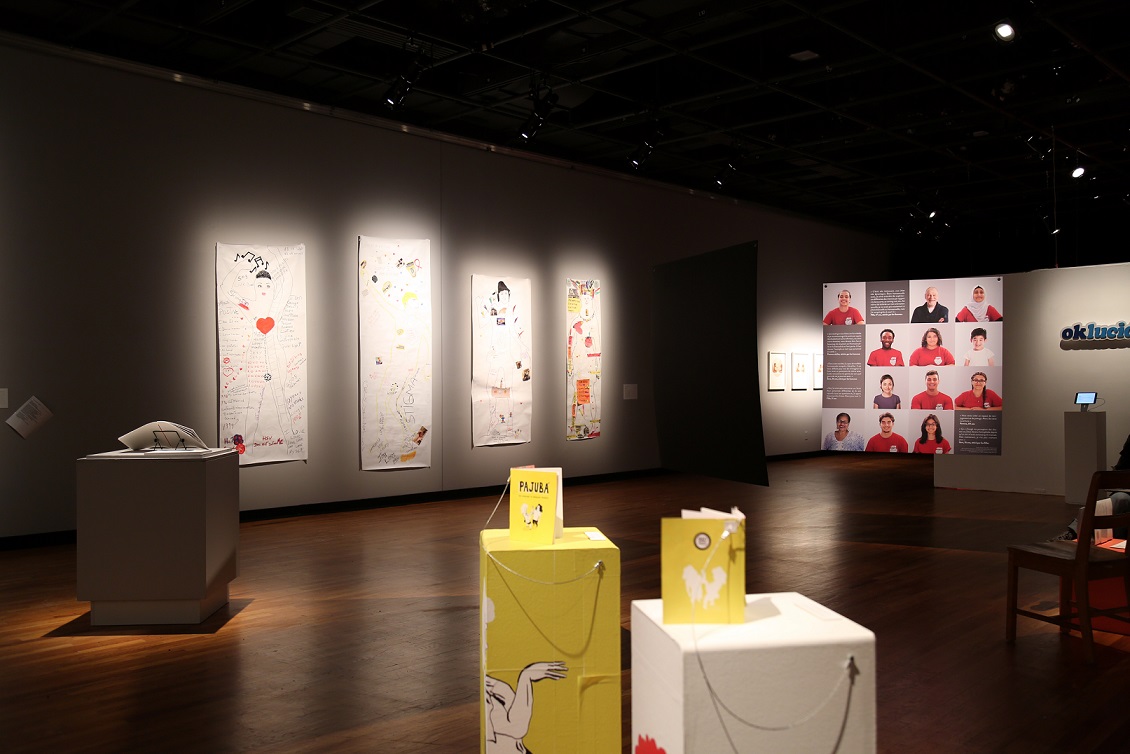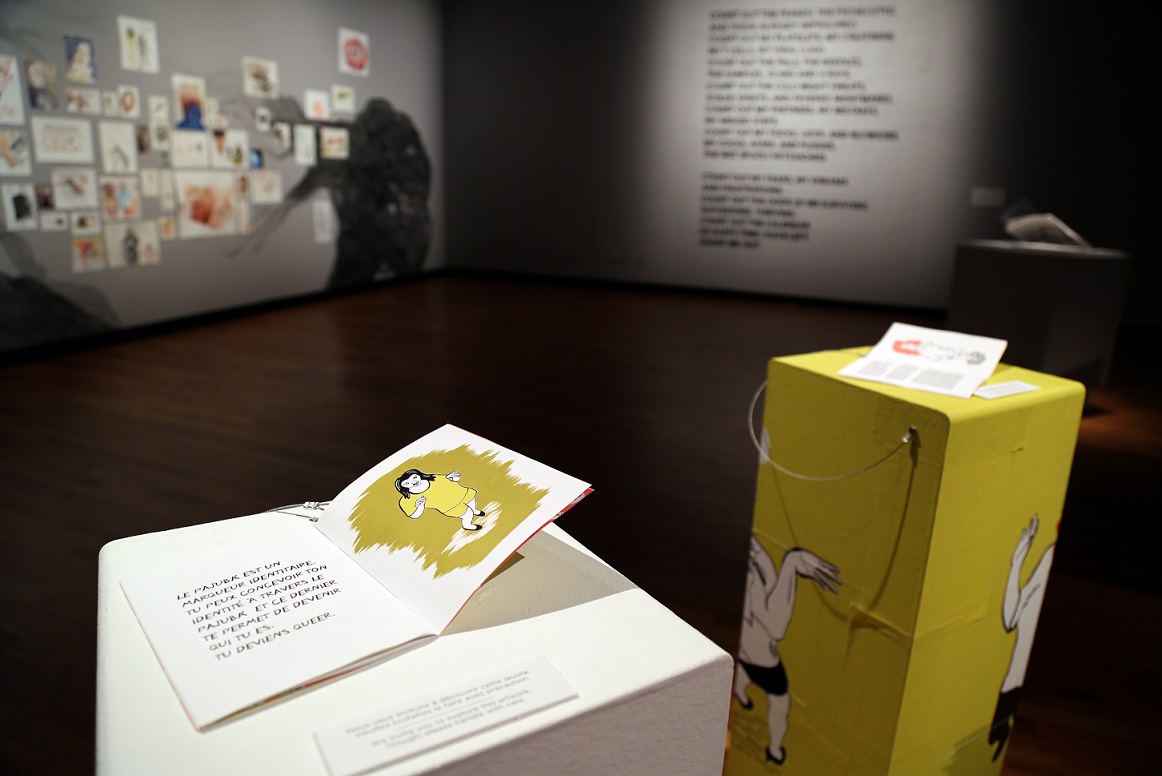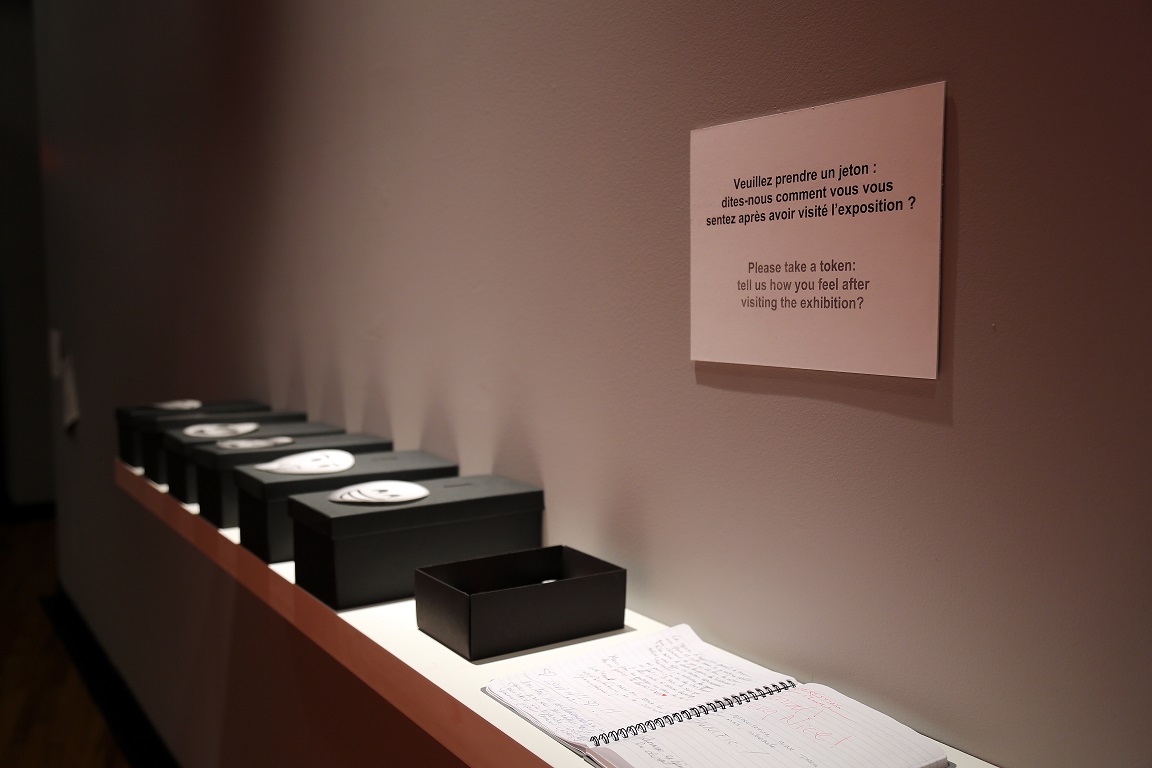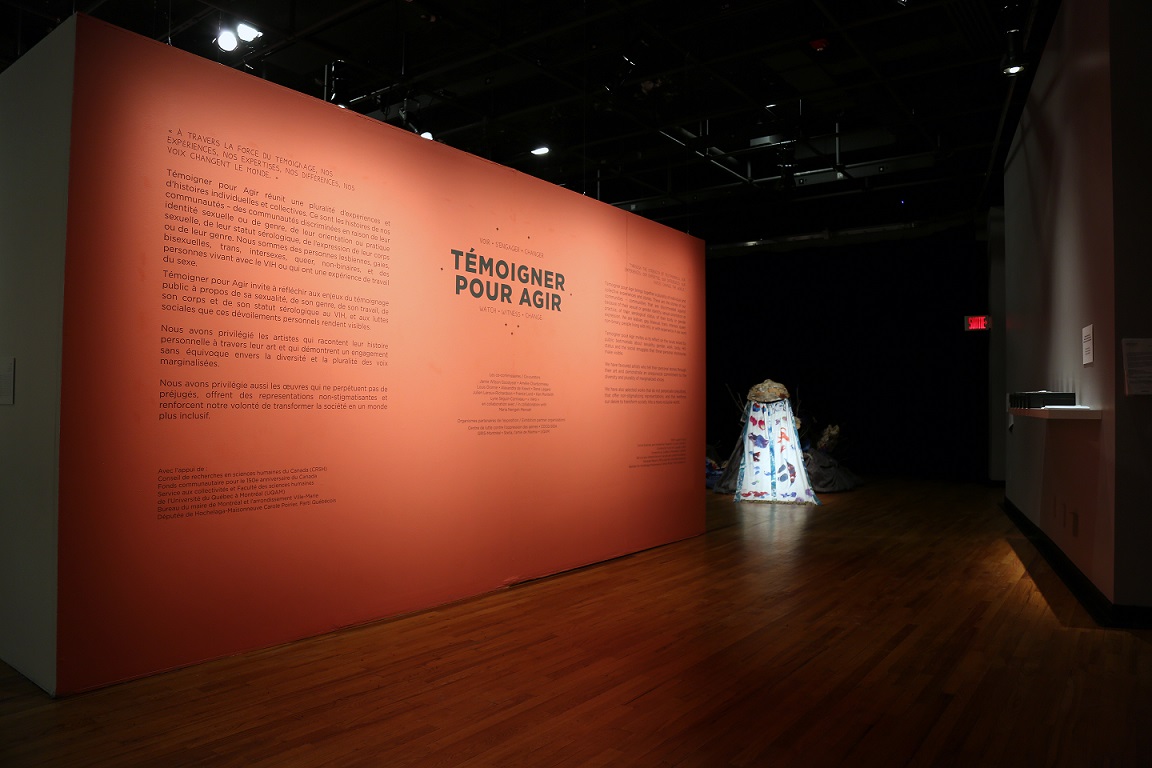About
Témoigner pour Agir was an art exhibition that presented the testimonial cultures of sexual and gender communities at the Maison de la culture Frontenac in Montreal, from November 29th, 2017, to January 21st, 2018. With this exhibition, there was the opportunity to discover the stories of people self-identifying as gay, lesbian, bisexual, queer, trans, intersex, and of persons living with HIV or that have sex work experience.
As a result of partnerships between communities and the academic milieu, Témoigner pour Agir has developped an ethical discourse that highlights the aesthetic, historical and political issues, and challenges, that arise when testimonials about sexuality, body and gender expression, sex work and HIV-positive status are delivered publicly.
The artworks, from both professional artists and community art projects, presented narratives that are intimate and contemporary, which reflect a collective struggle and a call for solidarity.
Consult the Témoigner pour Agir catalogue here
The community partners of the exhibition are:
- Center for Gender Advocacy
- Coalition des organismes communautaires québécois de lutte contre le sida [COCQ-SIDA]
- Groupe de recherche et d’intervention sociale de Montréal [GRIS Montréal]
- Stella, l’amie de Maimie
Exhibition Objectives
The project objectives were to:
- Sensitize publics by making known the plurality of sexual and gender communities’ experiences and stories (individual and collective);
- Bring together scientific, artistic and community expertise and knowledge, as well as common perceptions acquired by the public;
- Create an ethical discourse highlighting the aesthetic, historical and political issues, and challenges, generated from artistic testimonial about sex, gender, work, the body, and HIV-status;
- Support the social integration of sexual and gender communities by contributing to the establishment of an environment which is conducive to personal disclosure as well as to improving their overall quality of life.
Message
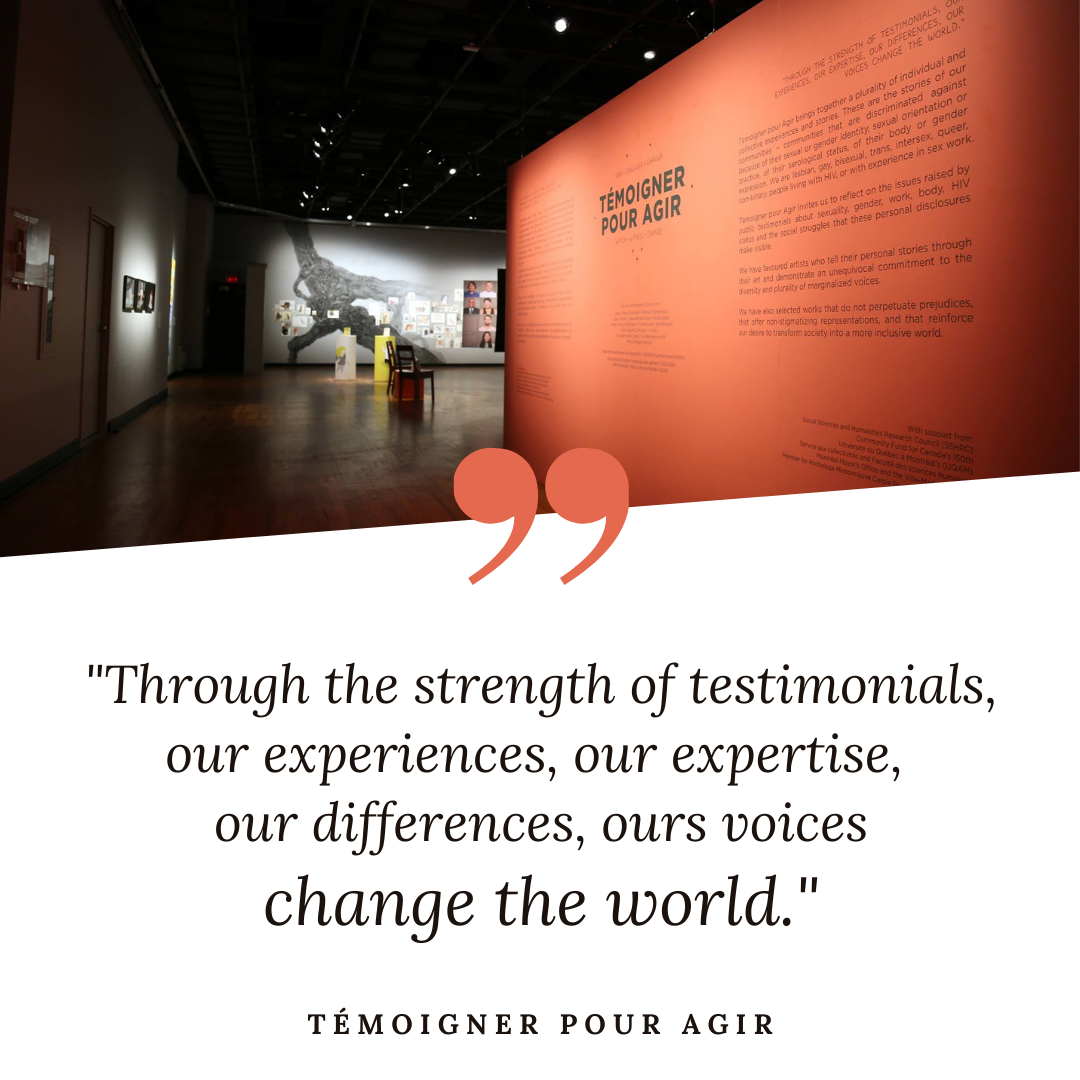
Ethics at the heart of the process
Ethics and respect for personal testimonials and artists are the foundations of the exhibition project, Témoigner pour Agir, produced by Testimonial Cultures research group. By ethics, we refer to transparency in practices and intentions. To do this, a central place is given to the people involved in the project.
For the well being of the people involved
Respect for each individual’s self-disclosure process is one of our main concerns. In this sense, we recognize that everyone will not want to have the same type of public visibility. We are committed to respecting people’s personal limits and the various ways one can be involved in the project within those limitations. Also, throughout the process, we will offer support and guidance to people whose practices, identity, sexual orientation or gender are revealed publicly so as to minimize the risks associated with public testimonial. Inspired by our previous work with social workers who accompany persons living with HIV/AIDS, our social support approach is integrated before, during and after the public testimonial.
For the respect of human dignity
Without denying the processes of victimization in respect of certain sexual communities, this exhibition project distances itself from victimizing messages and representations. In this sense, Témoigner pour Agir is an exhibition project that will showcase sexual and gender diversity by simply presenting human realities as both complex and plural.
For an inclusive social context marked by justice and equality
One of the aims of the exhibition, regarding justice, is to render visible and audible the views of sexual communities that are a minority within society. Thus, it is important that each of community has a space of equal importance at every stage of the development and implementation of the exhibition.
© J. W. Goodyear for Testimonial Cultures
Measures for meeting ethical project requirements
Several measures are deployed to ensure our ethical commitments:
- (1) the possibility for artists and persons giving a testimonial to use a pseudonym;
- (2) maintain confidentiality and protection of personal information;
- (3) a requirement for the exhibition, or circulation of works and testimonials, is the written authorization from artists or persons who give their testimonial;
- (4) the creation of a social action group; this “Community Wisdom Committee”, comprising of members from each community, is mandated to reflect and discuss the issues, challenges and opportunities encountered in the process, production and reception of the exhibition, and to make recommendations for action;
- (5) on the issue of sensitive content, creating a defined space within the exhibition, as well as the implementation of tools (text or otherwise) explaining aspects of artistic approaches and realities to help the public to better understand rather than to be shocked.
Collaborators
- Maison de la culture Janine-Sutto (previously known as Maison de la culture Frontenac)
- Bibliothèque Frontenac
- Institut de recherche et d’études féministes (IREF)
Acknowledgement
This initiative is made possible by the Community fund for Canada’s 150th, a collaboration between Canada’s community foundations, Foundation of Greater Montréal, the Government of Canada, and extraordinary leaders from coast to coast.
Iterative Approach and Co-curating
A collaborative, supportive and democratic approach to curating informs our governance structure. It is based on scientific and practical knowledge brought to the process by the members of the research team, the exhibition curator, and the advisory committee, composed of members of the sexual and gender communities.
We call this iterative approach co-curating: the work of the professional curator as an expert and a facilitator offers a space where the emergence and the confrontation of ideas is possible and where decisions are made in a transversal and inclusive way. From this co-curating relationship with community groups, a common voice emerges from knowledge and experiences of the members of represented sexual and gender communities. Artists, through their artistic testimonials, act as storytellers for these communities to promote empowerment and social justice. The curator’s role, as a mediator, is the cornerstone that connects artists, and their work, with communities.
Advisory Committee (Comité des sages)
To ensure respect of diversity and human dignity, an Advisory Committee has been created. Composed by members from the community partners, the advisory committee’s mandate is to reflect on the exhibition’s ethical issues. Specifically, the Advisory Committee reflects on and discusses challenges, obstacles, and opportunities encountered in the production and reception of the exhibition.
The members of the Advisory Committee must:
- Ensure that the exhibition project brings together and represents a variety of testimonials from sexual and gender communities in an anti-oppressive perspective of inclusion and social change;
- Identify emerging challenges related to the exhibition, on personal, social and political levels;
- Decision making at each stage of implementation (concept, design, artist selection, production, advertising, audience feedback, short- and middle-term follow-up);
- Recommend to the Organizing Committee actions to tackle challenges.



